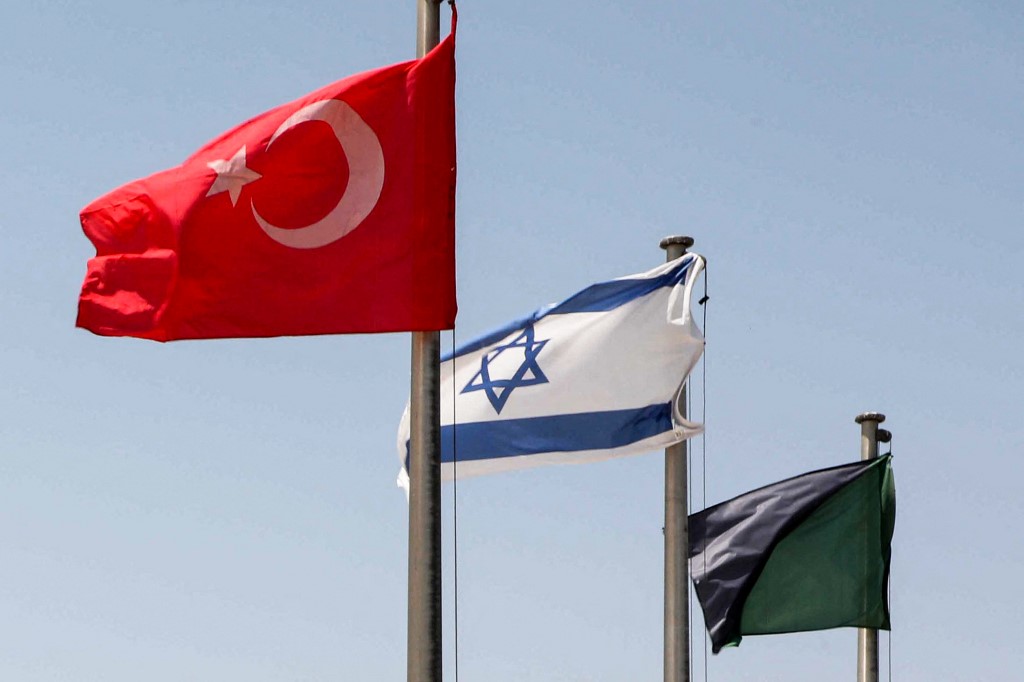Turkey’s recent export data indicate a significant increase in trade with Palestine, leading to speculation that the country may be masking its ongoing trade with Israel under the guise of exports to Palestine.
According to data released by the Turkish Exporters Assembly (TİM), exports to Israel have reportedly dropped to zero, while exports to Palestine have surged by an extraordinary 1,180 percent year-on-year.
The Turkish Trade Ministry announced in May that exports to Israel were halted until humanitarian aid could be assured for Gaza. However, these new figures suggest that Turkey may be redirecting its trade through Palestine to maintain economic interactions with Israel while presenting a different picture in official records.
In July 2023 Turkey exported $9.3 million in goods to Palestine. By July 2024 this figure had surged to $119.5 million. This dramatic increase coincides with a reported complete halt in Turkish exports to Israel, which had previously amounted to $383.9 million in July 2023.
Significant increases were noted in exports of steel and cement to Palestine. For example, steel exports leapt from $27,000 in July 2023 to $14.3 million in July 2024—a remarkable 51,756 percent increase. Cement exports also rose dramatically from $1,000 to $4.7 million. Additionally, previously nonexistent categories such as jewelry and furniture now feature prominently in trade with Palestine. Jewelry exports jumped from zero to $170,000, and furniture imports surged to $12 million.
Analysts and journalists have raised concerns about the authenticity of these trade figures. Uğur Zengin from the Evrensel daily reported that the data indicate an effort to obscure trade relations with Israel by declaring exports as being to Palestine. This suspicion is backed by the significant increase in previously negligible export categories such as steel and cement.
The apparent masking of trade with Israel comes at a time of heightened political tension between Turkey and Israel.
Last week President Recep Tayyip Erdoğan suggested that Turkey could take military action against Israel, similar to its interventions in Libya and Nagorno-Karabakh. In response, Israeli Foreign Minister Israel Katz likened Erdoğan to Saddam Hussein, which drew a sharp rebuke from Ömer Çelik, spokesperson for Erdoğan’s ruling Justice and Development Party (AKP), who compared Katz to Nazi Germany’s foreign minister.
The war of words intensified after Turkey declared a national day of mourning for assassinated Hamas leader Ismail Haniyeh, with Katz summoning the Turkish deputy ambassador in response.
Turkey’s relations with Israel have been marked by periods of both cooperation and tension. In 2010 relations soured after Israeli forces attacked Turkish ship the Mavi Marmara, which was part of a flotilla attempting to deliver aid to Gaza. However, trade between the two countries continued, driven by economic pragmatism on both sides.
President Erdoğan has positioned himself as a staunch supporter of the Palestinian cause, often criticizing Israel’s actions in the region. Despite this, the economic relationship between Turkey and Israel has remained significant, with bilateral trade reaching $6.3 billion in 2023.
The Gaza Strip is suffering a humanitarian crisis caused by Israel’s military campaign against Hamas that has been going on since October 7, with the United Nations and aid agencies warning of impending famine.
On October 7, Hamas carried out an unprecedented attack on Israel that resulted in the death of roughly 1,200 people, mostly civilians, and some 250 people taken hostage.
Israel’s retaliatory offensive against Hamas has killed at least 36,000 people in Gaza, mostly women and children, according to the Gaza health ministry, and has devastated the Gaza Strip.
Turkey is one of the most outspoken critics of Israel’s war on Gaza, accusing the Israeli government of committing “war crimes” and “genocide” in the enclave. In early May Turkey’s Trade Ministry announced that it was suspending all trade with Israel until it allows aid to enter Gaza unhindered during its offensive against Hamas militants.
Turkey’s trade move against Israel followed domestic attacks on the government for failing to cut off trade sooner.



